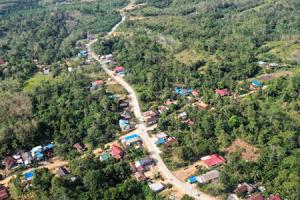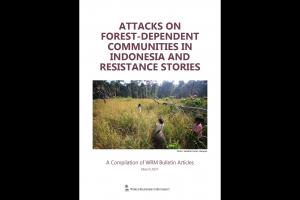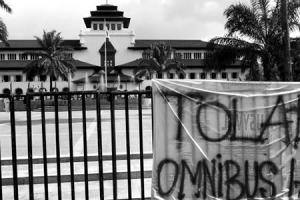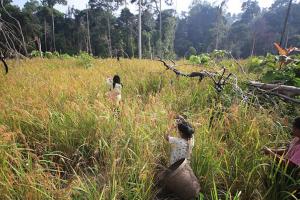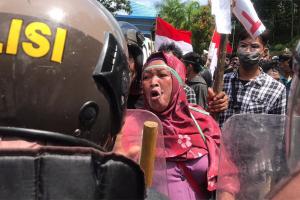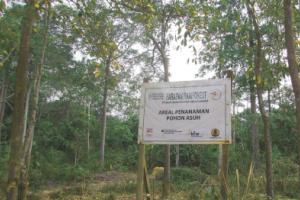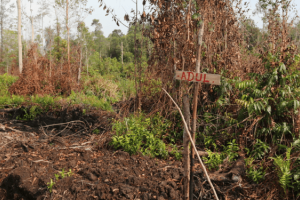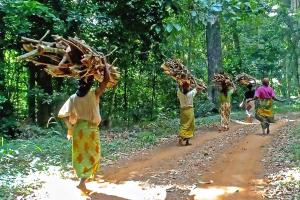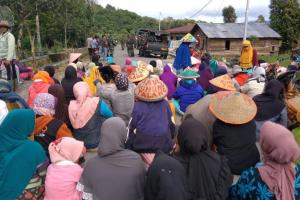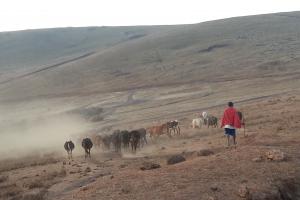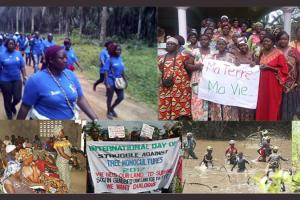Struggles for the Forests
When corporations destroy forests, or restrict or even prohibit access to forest peoples' territories, they place communities' ways of life and their very existence at risk. WRM supports forest peoples' struggles to defend their territories, and their right to decide how to live, and how to use the forests they depend on.
The Balik People will bear the impacts of the plans to build a New Capital City mega-project in Borneo, Indonesia. Government officials and business elites in the country are certainly among those who will enjoy the benefits.
Available in Bahasa Indonesia.
WRM Bulletin Compilation. Available in English and Indonesian.
The government of Indonesia endorsed the criticized Omnibus Law by saying that it is “crucial to attract investment and ultimately create jobs.” The Law is a direct attack on the territories and communities resisting the increasing destruction that has been ongoing for decades in Indonesia. (Available in Indonesian).
The approval of a road construction inside the first Ecosystem Restoration Concession in Indonesia puts in evidence the inherent contradictions of such concessions. (Available in Indonesian)
This article highlights four trends that evidence how the mining industry continues to benefit from the Covid-19 pandemic while continuing its destruction throughout the archipelago. While corporate-oligarchs are hijacking democracy by perpetuating emergencies, a new dictatorship is being installed under the flag of mining capitalism. (Available in Indonesian).
Back in 2004, conservation NGOs and the Indonesian Ministry of Forestry pioneered with a model called Ecosystem Restoration Concessions. This article takes a closer look at this model in the context of new and old threats to forests, and the global push for “forest restoration”. (Available in Indonesian).
Oil multinational Shell claims that it is possible that consumers drive “carbon neutral”, simply by paying extra for offsetting their emissions - planting trees or investing in existing forest areas elsewhere. But what is happening in those areas elsewhere? (Available in Indonesian).
Plantation companies often argue that local populations are destroying the forests, particularly where people depend on firewood and/or charcoal for their energy needs. Thus, they argue, industrial plantations can “sustainably” provide this wood. But this is simply not true.
“If our land, water sources, air and livelihoods are being destroyed by geothermal exploration and exploitation, how can this energy be called “clean”? “Clean” for whom?”
Before, conservation organizations were focused on raising money to create protected areas in forests supposedly threatened with destruction; today, they constitute a bona fide transnational “industry” that manages and controls areas that go far beyond forests.
For the past eighty years, the Maasai have been displaced and dispossessed of their land, livelihoods, and more in Northern Tanzania, all under the guise of “conservation.” This article traces the origins of this dispossession through to present day struggles, calling for international solidarity.
Despite the many profound damages that industries cause in the world's forests, they also cause something else to emerge: the strong and diverse resistance movements of affected communities defending their territories, livelihoods, cultures and even their existence. The struggle continues! (Available in Swahili).
